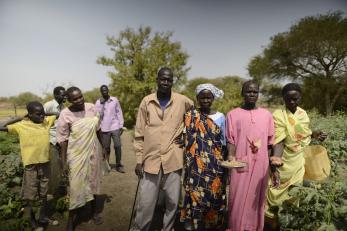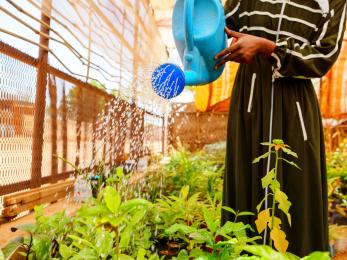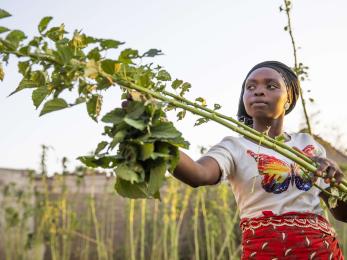The Currency of Connections

Why Do Social Connections Matter for Households in South Sudan?
Read the full report ▸
Read the brief ▸
Download the technical appendix ▸
The Currency of Connections research initiative ▸
In protracted crises where there are weak or nonexistent formal governance structures, people depend heavily on local systems—both social and economic—to get by. Communities themselves are often the first responders in a crisis, reacting long before humanitarian actors arrive. Our report examines how social connections during times of crisis enable populations to manage shocks and stresses in South Sudan. It found that:
- In addition to assistance from external aid actors, households rely on support shared within their social networks during times of crisis.
- Households maintain and build their social networks during crises using two key strategies: proactively sharing material support and marriage.
- Different socioeconomic and community-level factors determine the relationships that households are able to form and the types of support they can exchange.
- Socially connected households are better able to diversify their diets and are more optimistic that they can cope and recover in the face of future shocks and stresses. However, social connectedness can also be a source of household vulnerability as households maintain and build social connections for future support over immediate needs.
- When productive livelihoods collapse, households often share humanitarian aid as a means of maintaining and expanding their social networks. In some cases, households that receive cash transfers risk being excluded from reciprocal support systems.
This study demonstrates that aid actors need to more holistically understand foundations of household vulnerability and sources of resilience during crises by considering social connectedness throughout programme cycles, including in design, implementation, and evaluation phases. This mixed methods report is final publication from the Currency of Connections series, a research initiative between Mercy Corps and the Feinstein International Center at the Friedman School of Nutrition Science and Policy, at Tufts University with support from the Bureau for Humanitarian Assistance (BHA).
The series offers aid actors insights into localised social protection and support systems in South Sudan and Uganda, and highlights the ways in which humanitarian aid can both complement and disrupt these systems. We hope that The Currency of Connections will enable donors and aid actors to design and deliver programmes that strengthen existing social support networks and, at the very least, do not undermine them.

